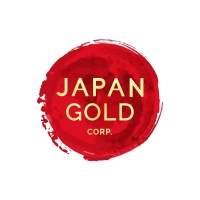International Commercial Arbitration - The Canadian Connection
The gradual internationalization of financial, commercial, economic and technical matters over the last fifty years has resulted in a major shift in the conduct of business. It is now rare to see a major financial or technical project that is not a multinational effort, and most developments involve suppliers, financiers, insurers and personnel from many countries.
At the same time, international trade is developing without any concurrent lega1 regime. When corporations or individuals conclude contracts outside their national boundaries, no coherent set of legal rules is available to them. As no international law or court for private disputes exists, national law is an alternative--but a mistrust or ignorance of foreign national legal systems has encouraged companies to avoid this route. International arbitration has developed to fill this legal void, with contracts for such international relationships as the sale of goods, joint ventures or distributorships typically containing an arbitration clause.
Neutrality
One of the principal advantages of international arbitration is its neutrality. Companies are often reluctant to submit commercial disputes with foreign parties to litigation in foreign courts for fear that those courts will favour their own nationals. Under international arbitration, however, the potential partiality of a foreign court is not a concern because the parties may choose the site of the arbitration as well as the identity of most, if not all, of the arbitrators. Under typical arbitration rules and practice, each party appoints an arbitrator, and then those arbitrators consult and agree on the appointment of a third arbitrator. If they are unable to agree on a third arbitrator, the relevant arbitration institution chooses a "neutral" arbitrator from a list of available persons. Of course, no dispute is a good dispute, so if it can be negotiated away, that is clearly the best course of action. However, the arbitration process may well be better than the courts, and particularly certain courts.
Confidentiality
Confidentiality is another important advantage of international arbitration. Under the rules of arbitration, documents and written submissions pertaining to the proceedings, as well as the fact of the dispute between the parties, are kept confidential. Some of this confidentiality may be lost if the losing party refuses to honour the arbitral award and the victorious party is forced to bring an action to enforce the award in its own courts. However, because of the growing acceptance of arbitral awards in the international community, such actions are increasingly rare.
A further advantage of international arbitration is the relative ease with which arbitral awards can be enforced. Foreign arbitral awards have been consistently enforced under the United Nations Convention on the Recognition and Enforcement of Foreign Arbitral Awards (also known as the New York Convention), to which 89 countries, including Japan, Canada and the United States, are now signatories. Once the arbitral award is recognized by a court (with the victorious party usually going to the jurisdiction where the losing party has assets), it carries exactly the same weight as a judgement of that court.
One of the oldest, most well recognized set of rules for arbitration are those of the International Chamber of Commerce (ICC), which is the leading international arbitration institution. Created shortly after WWI, the ICC operates not only as a source of rules, but also as an institution that provides a framework for administering the entire dispute. The seat of the ICC Court of Arbitration is in Paris, but only a third of ICC arbitrations actually occur there. The remainder take place at ICC-related venues in 62 other countries.
The Canadian Connection
The ICC originally had a near-monopoly on institutional arbitration. But as the market for international arbitration has expanded with globalization, many more institutions have been created to meet the increasing need. Canada has two such institutions, the Vancouver-based British Columbia International Commercial Arbitration Centre (BCICAC) and the Quebec National & International Commercial Arbitration Centre, with Vancouver being the more active. The leading arbitral body in Japan is the Japan Commercial Arbitration Association. Although these institutions often serve particular segments of the dispute resolution market, there is a lot of competition for the business of providing institutional support. Healthy competition serves to construct a legitimacy in the institutions and, at the same time, supports the notion of arbitration as a form of alternative dispute resolution.
Not Only Lawyers
A significant aspect of arbitration has been that the key players have usually been of the same ilk--that is, lawyers. But the growing popularity of arbitration has seen the circle of participants widen, with professionals from different industries serving as arbitrators, counsel or professional arbitration administrators. There is no requirement that arbitrators be lawyers, so the phenomenon of parties appointing non-lawyers with specialised knowledge of subject matter, (particularly for cases involving technical matters) has grown rapidly. Engineers, architects, maritime and shipping specialists and computer technicians are all in great demand.
It is in this context that Canadians with particular expertise (not just Canadian lawyers) have a significant advantage. Canadians have a (somewhat deserved!) reputation for being fair and impartial--the Swiss of the North, if you will. As one would expect, the large portion of commercial disputes occurs between Japanese and US companies, so the perceived neutrality of Canadians is particularly applicable in the context of Asia in general and Japan in particular. I can say that, in my own practice, being a Canadian has been of significant benefit, and it is fair to say that Canadians (particularly those with some Japanese language skills) have a potentially significant role to play in the world of international arbitration.
I became familiar with arbitration in representing the Canadian distributor of a major Japanese electronics manufacturer. In spite of a 20-year-plus relationship, the Japanese company abruptly canceled its distribution agreement and offered (from my client's perspective) inadequate compensation. After negotiations failed, the much smaller and less-mighty Canadian company invoked the arbitration clause and began arbitration in Tokyo. Just over one year later, a much happier outcome (again, from my client's perspective) was achieved.
Like Paul on the road to Damascus, I became a convert to the concept of arbitration. Two principal points impressed me. First, the time (and, of course, money) required to adjudicate the matter was a fraction of what it would have been in the Japanese court system. Second, in spite of the Canadian "David" versus the Japanese "Goliath" commercial reality, arbitration provided a more-or-less level playing field.
The experience also made me realize that far worse situations could arise. The Japan court system is perhaps cumbersome, but at least it has one. What if my client had been pursuing its case through the court system in a place such as China, Vietnam or Bulgaria? Regardless of the country or court system, international arbitration offers a relatively inexpensive, faster and certainly more private mechanism for resolving commercial disputes.
My conversion to the arbitration cause became complete after graduating from an intensive diploma program under the auspices of London's Chartered Institute of Arbitrators, at Keble College, Oxford. I was honoured to be appointed as a Fellow of the Chartered Institute (F.C.I.Arb.). A client recently asked what that title means. I replied that it means that when I go to conferences on international commercial arbitration and bore people, they now think it's their fault!
To learn more about international arbitration, please visit the JCAA (www.jcaa.org) or BCICAC (www.bcicac.com) websites.
Haig Oghigian practices law in Tokyo with the firm of Jones, Day, Reavis & Pogue (www.jonesday.com). He is a former Foreign Service Officer at the Canadian Embassy in Japan.



























